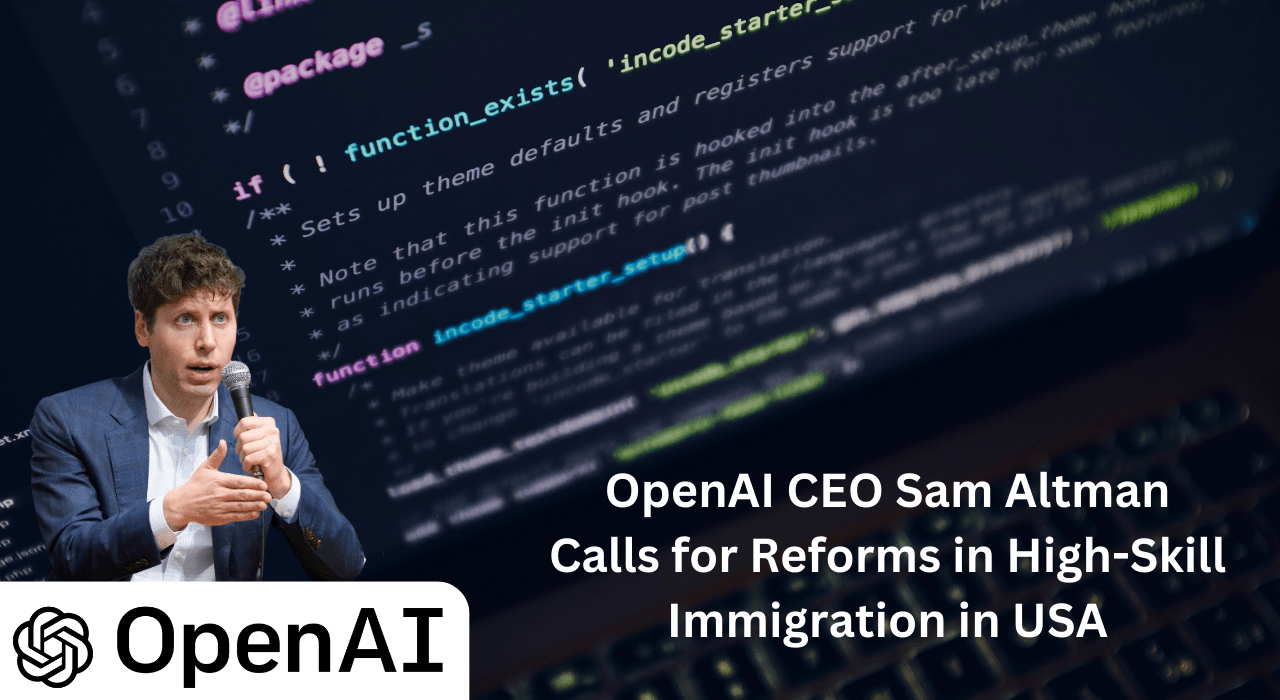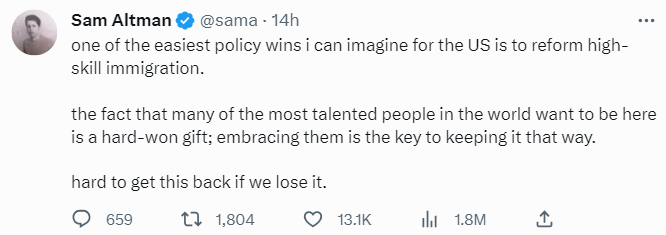
Introduction:
OpenAI CEO Sam Altman recently shared a tweet emphasizing the importance of reforming high-skill immigration for the United States. Altman believes that welcoming talented people from around the world is a valuable gift that needs to be preserved. From an Indian perspective, as many skilled tech professionals come from India, this raises questions about how these reforms could benefit India and whether the United States will actually implement them.

The Value of Talent:
Altman acknowledges that it’s a wonderful thing that many talented people want to be in the United States. The tech industry in the U.S. greatly relies on skilled individuals, and India is a significant contributor to this talent pool. Indian professionals have made important contributions to innovation, research, and starting new businesses in the United States. By embracing these talented individuals, the U.S. can strengthen its position as a global tech hub and stay at the forefront of cutting-edge fields.
Benefits for India:
Reforming high-skill immigration would bring significant benefits to India. While some may worry about talented individuals leaving the country, it’s important to recognize that they often gain valuable experience and exposure abroad, which they can later bring back to India. The interaction between Indian professionals and the U.S. tech ecosystem promotes knowledge exchange, innovation, and collaboration. This can fuel India’s own technological advancements and economic growth.
Economic Implications:
From an economic perspective, high-skill immigration reform can benefit both the United States and India. By attracting and retaining talented individuals, the U.S. can maintain its competitive edge, drive innovation, and stimulate economic growth. Similarly, India can benefit from the knowledge and skills its professionals gain in the United States. This can help strengthen India’s own industries and position it as a global tech powerhouse.
The Way Forward:
While Altman’s tweet highlights the importance of high-skill immigration reform, it’s up to policymakers to make it happen. It’s crucial for the United States to recognize the value that foreign talent brings and to streamline immigration processes accordingly. However, immigration policy reform is complex and involves balancing national interests, security concerns, and acknowledging the contributions of talented individuals.
Conclusion:
Sam Altman’s tweet resonates with the Indian perspective, given the significant number of skilled professionals from India working in the United States. High-skill immigration reform has the potential to benefit both India and the United States. By embracing talent, the United States can maintain its global position in the tech industry, while India can leverage the knowledge and experiences gained by its professionals to drive its own growth. As the world becomes increasingly interconnected, it’s important for countries to adapt their immigration policies to reap the benefits of high-skill immigration.
